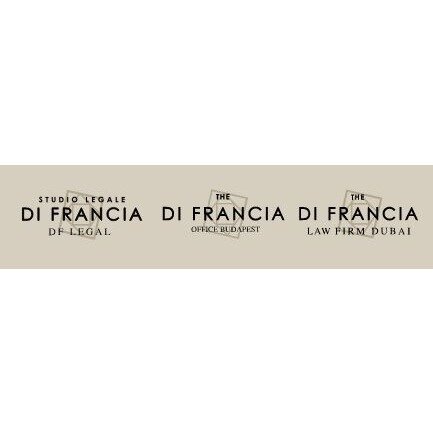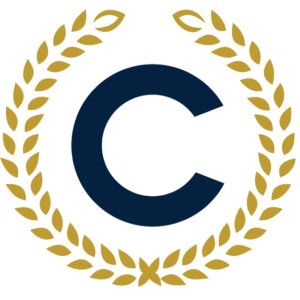Best Sanctions & Export Controls Lawyers in Bologna
Share your needs with us, get contacted by law firms.
Free. Takes 2 min.
List of the best lawyers in Bologna, Italy
About Sanctions & Export Controls Law in Bologna, Italy
Sanctions and export controls are areas of law that regulate the movement of goods, services, and finances across borders. In Bologna, as in the rest of Italy, these laws are primarily guided by European Union regulations, with additional Italian national regulations applying in specific circumstances. Sanctions typically refer to restrictive measures imposed on individuals, companies, or countries by the EU, United Nations, or Italy itself, often in response to national security, foreign policy, or human rights concerns. Export controls restrict or require authorization for the export of certain goods, technologies, or know-how, especially those with dual-use between civilian and military purposes. Adhering to these laws is crucial for businesses, researchers, and individuals involved in international trade or collaborations.
Why You May Need a Lawyer
There are many situations where seeking legal advice in the area of sanctions and export controls becomes essential. A few common scenarios include:
- If your business exports goods, technology, or services outside the EU and you need help understanding whether an export license is needed
- If you have received a request for information or investigation notice from competent Italian authorities or EU bodies
- If you are collaborating with partners in countries subject to EU, UN, or Italian sanctions
- If your assets or bank accounts have been frozen due to suspected sanctions violations
- If you are facing fines or criminal charges for alleged violations of export control regulations
- If you are conducting due diligence for mergers, acquisitions, or investments involving international partners
- If you are unsure about your compliance obligations as a university, researcher, or technology developer dealing with dual-use items
- If you wish to apply for an export authorization or challenge the denial of a license
In these and other cases, an experienced sanctions and export controls lawyer in Bologna can help you understand your obligations, minimize risks, and protect your interests.
Local Laws Overview
Italy implements sanctions and export control laws through a combination of European Union regulations and national legislation. The central legal instruments include:
- EU Council Regulations imposing sanctions or restrictive measures, which are directly applicable in Bologna and all of Italy
- Regulation (EU) 2021/821 - the Dual-Use Regulation, which governs the export of goods, software, and technology with both civilian and military applications
- Italian Law No. 185/1990 concerning the control of arms, military materials, and dual-use items exports
- Decrees and guidance issued by the Italian Ministry of Foreign Affairs and International Cooperation (MAECI)
- National enforcement by authorities such as the Guardia di Finanza and customs agencies
In Bologna, as elsewhere in Italy, companies and individuals are required to screen transactions, apply for relevant authorizations, keep records, and report suspicious activities. Non-compliance can result in administrative penalties, fines, loss of export privileges, and in some cases, criminal proceedings. Local legal practitioners help interpret and apply these rules to a variety of contexts, from advanced manufacturing to academic research.
Frequently Asked Questions
What are EU sanctions and how do they affect businesses in Bologna?
EU sanctions are restrictive measures imposed for political or security reasons on certain countries, entities, or individuals. These can include trade restrictions, asset freezes, and prohibitions on doing business with designated parties. Businesses in Bologna must ensure they do not conduct prohibited transactions and must perform due diligence checks against sanctions lists.
Who needs to comply with export control laws in Bologna?
All companies, research institutions, and individuals exporting goods, software, or technology outside the EU are subject to export control laws, especially for dual-use items or items with potential military applications.
What is a dual-use item?
A dual-use item is a product, technology, or software that can be used for both civilian and military purposes. These items are subject to stricter export controls and may require a license to export outside the EU.
How do I check if my company or product is affected by sanctions or export controls?
You should review the EU’s consolidated list of sanctions and the EU dual-use control list. Legal counsel can assist with detailed screening and classification to determine whether your activities are restricted or require a license.
What are the penalties for violating sanctions or export controls in Italy?
Penalties range from administrative fines to criminal prosecution, depending on the severity of the violation. Repeat or intentional violations, especially involving arms or sensitive technology, may result in higher fines and imprisonment.
Can I apply for an export license myself or do I need a lawyer?
While it is possible to apply for an export license yourself, the application process can be complex and legal advice is highly recommended to ensure full compliance and to avoid costly mistakes.
What is the process for appealing a denied export license in Italy?
You can appeal to the competent administrative authority, usually the Ministry of Economic Development or Ministry of Foreign Affairs. Legal assistance increases your chances of a successful appeal and helps navigate the procedural requirements.
How do sanctions affect academic or scientific collaborations in Bologna?
Collaborations with entities or individuals in sanctioned countries may be restricted. Certain research outputs, data, or technology transfers may require export authorization even in academic settings.
What authorities oversee enforcement in Bologna?
Enforcement is overseen by national bodies, primarily the Guardia di Finanza (financial police), the Italian Customs Agency, and ministries responsible for foreign affairs and economic development.
I have received a notice of investigation - what should I do?
Seek legal advice immediately. Early intervention by a lawyer can help protect your rights, facilitate communication with authorities, and prepare a strong defense if necessary.
Additional Resources
There are several governmental and professional bodies in Italy and the EU that provide useful information and assistance regarding sanctions and export controls:
- Ministry of Foreign Affairs and International Cooperation (Ministero degli Affari Esteri e della Cooperazione Internazionale) - Directorate General for Global Affairs
- Customs and Monopolies Agency (Agenzia delle Dogane e dei Monopoli)
- Financial Security Committee (Comitato di Sicurezza Finanziaria)
- European Commission - DG Trade (for the Dual-Use Regulation and guidance)
- European External Action Service - Sanctions Map
- Professional associations of lawyers specializing in international trade and compliance
You may also consult the Chamber of Commerce in Bologna for guidance on local export requirements and resources.
Next Steps
If you believe you need legal assistance in the area of sanctions and export controls in Bologna, consider the following steps:
- Identify your specific issue or question related to sanctions or export controls
- Gather relevant documents, such as contracts, correspondence, or notices from authorities
- Consult with a lawyer who has experience in sanctions and export controls law, ideally with expertise in both EU and Italian regulations
- Ask the lawyer about their experience, approach, and the expected timeline and costs for your case
- Work with your legal advisor to develop a compliance plan or respond to government inquiries
Taking prompt action and obtaining proper legal advice can help you minimize risks, achieve compliance, and protect your business or personal interests.
Lawzana helps you find the best lawyers and law firms in Bologna through a curated and pre-screened list of qualified legal professionals. Our platform offers rankings and detailed profiles of attorneys and law firms, allowing you to compare based on practice areas, including Sanctions & Export Controls, experience, and client feedback.
Each profile includes a description of the firm's areas of practice, client reviews, team members and partners, year of establishment, spoken languages, office locations, contact information, social media presence, and any published articles or resources. Most firms on our platform speak English and are experienced in both local and international legal matters.
Get a quote from top-rated law firms in Bologna, Italy — quickly, securely, and without unnecessary hassle.
Disclaimer:
The information provided on this page is for general informational purposes only and does not constitute legal advice. While we strive to ensure the accuracy and relevance of the content, legal information may change over time, and interpretations of the law can vary. You should always consult with a qualified legal professional for advice specific to your situation.
We disclaim all liability for actions taken or not taken based on the content of this page. If you believe any information is incorrect or outdated, please contact us, and we will review and update it where appropriate.














